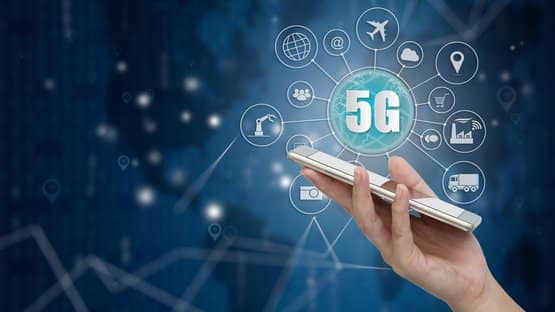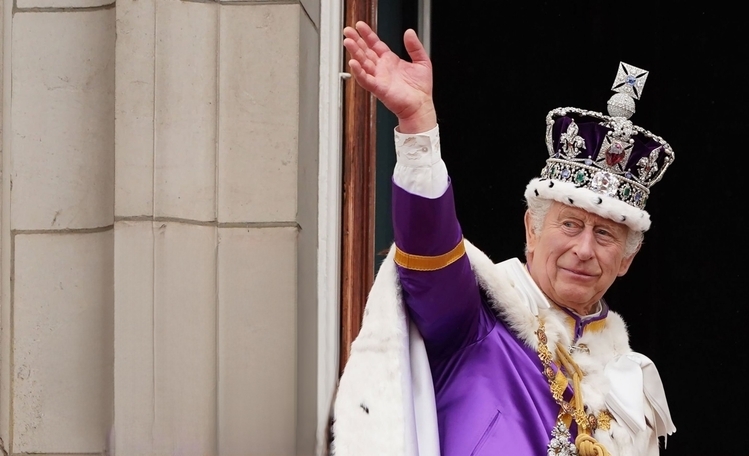Poorly regulated 5G tech opens up risk of ‘catastrophic cyber threats’, IoT director warns
- 1 March 2019

Using poorly regulated 5G technology may lead to “potentially catastrophic cyber threats and security breaches”, the director of an IoT company has said.
It comes after GCHQ director Jeremy Fleming called for better cyber-security practices in the telecoms industry amid concerns tech giants like Huawei could pose a security threat.
In the UK several companies are looking into the viability of 5G technology in the healthcare sector, including Internet of Things (IoT) company Pangea Connected are working with Kingston University in London to develop a new 5G-enabled video streaming service that allows A&E doctors to triage patients before they arrive at hospital.
Technology giant Ericsson has labelled 2020 to be the year 5G will be launched in healthcare.
Using 5G networks holds the promise of revolutionising the way we provide healthcare – through the introduction of telehealth and remote monitoring systems, for example – but as with all new technology there are risks involved, according to Dan Cunliffe, managing director of Pangea Connect.
“5G networks will provide exceptional and exciting changes to all our lives, due to its dramatically improved bandwidth and reduction in latency,” he told Digital Health.
“However, as with all new technology, there are risks. Networks will need to be built and upgraded to accommodate the innovation in technology, meaning there could be potential cyber threats and possible issues with security breaches.
“All sectors face a level of risk, but in terms of healthcare, perpetrators are most likely to try to compromise patient records or intercept data produced by healthcare devices.”
[themify_box icon=”info” color=”gray”]
How important is 5G in the digital transformation of healthcare?
“Digital transformation in the health sector is an interesting and demanding challenge,” Cunliffe said.
“In most cases, patients have only one option when they fall ill and need medical attention: travel to a doctor or hospital.
“With the advent of 5G, people in rural areas can immediately benefit from telehealth and remote home monitoring systems, while faster-acting wearables will alert patients or medics immediately when assistance is needed.
“As shown through our own 5G project, triage speed stands to greatly improve through new video streaming capabilities.
“As the use of Internet of Things (IoT) technologies continues to grow, the amount of data carried over networks will significantly increase—and 5G connectivity will be a crucial factor in enabling these potentially life-saving developments.”
[/themify_box]
Earlier this month the mobile network industry called for a new security testing scheme in Europe to check the safety of 5G devices, which are more frequently being used in healthcare, before they’re installed.
The GSMA, which represents 800 networks, expressed concern 5G networks were being held up due to fears surrounding security and suggested a new testing scheme would ease concerns.
The US has warned the UK, and other allies, not to use Huawei to build 5G networks following suspicions the Chinese government is using the company to spy on rival nations.
As the amount of data that needs to be carried over networks increases the need for 5G connectivity will be crucial, Cunliffe added, but being aware of the risks involved with new technologies can help us to stay two steps ahead.
“No instance of spying or hacking is ever a good thing, and at their worst they can be catastrophic,” he said.
“With regards to the healthcare sector, the main issues will always be centred around personal data and personal compromise.
“Security breaches in healthcare aren’t new—we saw it happen in the NHS in 2017, and those attacks could have been easily avoided.
“There’s potential for issues such as incorrect medication delivery or patient identity theft, both of which are dangerous in their own right; which is why its in healthcare providers’ best interests to ensure their network security is watertight.
“Tech and security are always going to be intrinsically linked, and if these life-saving solutions are going to work, we really need healthcare providers to work alongside us to invest in and implement the right level of security.”
Other 5G projects in the UK including Sensor City in Liverpool which has recently been awarded £3.5 million to look at how 5G wi-fi can be applied to better support patients and improve communication, alongside Liverpool City Council.
Ann Williams, of Liverpool City Council 5G Health and Social Care lead, said: “The impact that the Ransomware hack had on the NHS last year demonstrates that hacking into the health care system is potentially catastrophic.
“This is why we have placed cyber security at the heart of our project and continue to assess ongoing developments in this area.
“The 5G network, devices and applications being tested as part of Liverpool 5G Health and Social Care all use British technology.
“This means they do not have the risk or potential risks that are connected with using Chinese technology that other 5G rollouts are facing.”





2 Comments
I hoped you all watched Casualty on Sunday evening and saw Holby City get hacked. I believe the drams crosses over to Holby City on Tuesday night as the computer virus shuts down the hospitals power supply.
Couldn’t happen in real life, could it?
Good insight
Comments are closed.